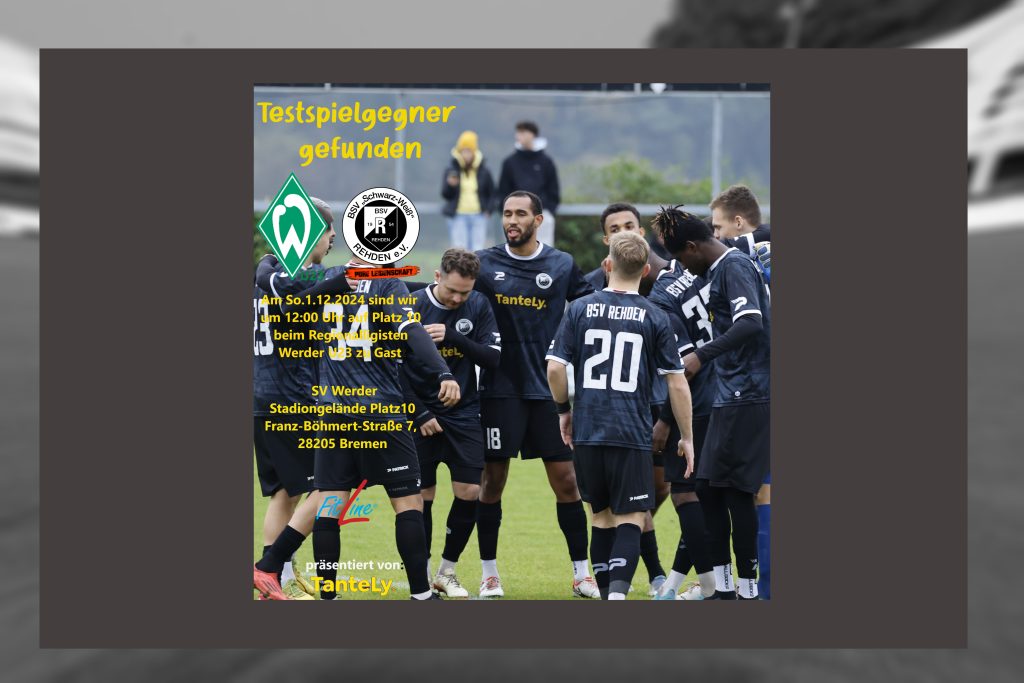Beim Regionalligist SV Werder Bremen U23 zu Gast
Wir bleiben im Rhythmus, denn am So., 01.12.2024 um12:00 Uhr sind wir auf Rasenplatz 10 beim Regionalligisten #werderbremen U23 zu Gast.
Fans sind zum Unterstützen erwünscht
Understanding Responsible Gambling Practices: A Betlama Educational Overview
The gambling industry has undergone remarkable transformation over the past two decades, evolving from predominantly land-based establishments to a sophisticated digital ecosystem accessible from virtually anywhere. This expansion has brought entertainment and economic benefits to millions, but it has also necessitated a fundamental shift in how operators, regulators, and players approach the activity itself. Responsible gambling practices have emerged as the cornerstone of sustainable gaming environments, representing a comprehensive framework designed to protect vulnerable individuals while preserving the recreational nature of gambling for the majority. Betlama and similar platforms have increasingly recognized that their long-term viability depends not merely on attracting customers, but on fostering healthy gaming behaviors that prioritize player welfare above short-term profit margins.
The Evolution of Responsible Gambling Frameworks
The concept of responsible gambling as a formalized industry priority emerged primarily in the late 1990s and early 2000s, coinciding with the rapid expansion of online gaming platforms. Prior to this period, gambling was largely viewed through a binary lens: either as harmless entertainment or as a moral failing. The pioneering work of researchers like Dr. Mark Griffiths and organizations such as GamCare in the United Kingdom helped establish problem gambling as a recognized behavioral health issue requiring systematic intervention rather than moral judgment.
During the early 2000s, regulatory bodies across multiple jurisdictions began mandating that licensed operators implement specific player protection measures. The United Kingdom Gambling Commission, established in 2005, became one of the first regulatory authorities to require operators to demonstrate active commitment to responsible gambling through measurable policies and procedures. These requirements included mandatory staff training, implementation of self-exclusion programs, and the prominent display of responsible gambling messaging across all customer touchpoints.
The Betlama approach to responsible gambling reflects this broader industry maturation, incorporating lessons learned from two decades of research and practical application. Modern responsible gambling frameworks rest on three foundational pillars: prevention through education, early intervention through behavioral monitoring, and treatment support for those experiencing gambling-related harm. Each pillar addresses a different stage of the potential problem gambling continuum, recognizing that effective player protection requires multi-layered strategies rather than single-point interventions.
Core Components of Responsible Gaming Systems
Contemporary responsible gambling systems incorporate numerous technological and procedural safeguards designed to help players maintain control over their gaming activities. Deposit limits represent one of the most fundamental tools, allowing players to set daily, weekly, or monthly maximum amounts they can transfer into their gaming accounts. Research published in the Journal of Gambling Studies has demonstrated that players who proactively set deposit limits before experiencing problems are significantly less likely to develop harmful gambling patterns compared to those who do not utilize such controls.
Time-based restrictions function similarly, enabling players to set session duration limits or to schedule mandatory breaks during extended gaming periods. These tools address the psychological phenomenon of time distortion, wherein absorbed players lose track of how long they have been gambling. Studies conducted by the Responsible Gambling Council have shown that regular interruptions, even brief ones, can significantly reduce impulsive decision-making and help players reassess their gaming behavior with greater clarity.
Reality checks constitute another essential component, automatically notifying players at predetermined intervals about the duration of their gaming session and their net wins or losses during that period. For those seeking to find out more about how these mechanisms function in practice, behavioral data from multiple operators indicates that reality checks are most effective when customizable by the player and when they present clear, unambiguous information about time elapsed and financial status without requiring complex calculations.
Self-exclusion programs represent the most comprehensive intervention tool available within responsible gambling frameworks. These programs allow players to voluntarily ban themselves from gambling activities for specified periods ranging from months to permanent exclusion. The effectiveness of self-exclusion has improved dramatically with the development of multi-operator and jurisdiction-wide databases that prevent excluded individuals from simply moving to alternative platforms. Betlama’s implementation of robust self-exclusion protocols aligns with best practices established by organizations such as the International Association of Gaming Regulators, which emphasize the importance of making exclusion processes easily accessible while ensuring they cannot be easily reversed during moments of impulse.
Behavioral Analytics and Early Intervention
The integration of advanced data analytics into responsible gambling practices represents one of the most significant developments in player protection over the past decade. Modern platforms collect vast amounts of behavioral data, including deposit patterns, game selection preferences, session durations, and betting behaviors. When analyzed through sophisticated algorithms, these data points can reveal patterns associated with problematic gambling before players themselves recognize they are experiencing difficulties.
Markers of potential concern include rapid escalation in deposit frequency or amounts, extended session durations that deviate from established baselines, chasing losses through immediate redeposits following significant losses, and dramatic shifts in betting patterns such as suddenly placing much larger wagers than historical norms. Research conducted by the Division on Addiction at Cambridge Health Alliance has identified that early intervention based on these behavioral indicators can prevent the progression to severe problem gambling in approximately forty percent of at-risk players.
The implementation of these systems requires careful calibration to balance player protection with respect for individual autonomy. False positives, wherein the system flags recreational players exhibiting temporary behavioral changes, can lead to unnecessary intrusions that damage the customer relationship. Conversely, setting thresholds too conservatively may fail to identify genuinely at-risk individuals until significant harm has occurred. Leading operators continuously refine their algorithms based on outcome data, adjusting sensitivity levels to optimize the balance between intervention and autonomy.
When behavioral analytics identify potential concerns, responsible operators initiate graduated intervention protocols. Initial steps typically involve automated messages encouraging players to review their activity and consider utilizing available control tools. If concerning patterns persist, these communications may escalate to direct contact from trained responsible gambling specialists who can discuss the player’s situation and recommend appropriate resources. The most advanced systems incorporate machine learning capabilities that improve prediction accuracy over time by analyzing which behavioral patterns most reliably predict subsequent gambling-related harm.
Education, Awareness, and Support Resources
Effective responsible gambling frameworks recognize that technological controls and behavioral monitoring must be complemented by comprehensive education initiatives that help players understand both the nature of gambling products and the warning signs of developing problems. Transparency about game mechanics, particularly regarding house edges and the role of randomness, empowers players to make informed decisions about their participation. The Betlama educational approach emphasizes demystifying gambling mathematics, helping players understand that while short-term variance can produce wins, long-term outcomes inevitably favor the house across all casino games.
Understanding cognitive biases that influence gambling behavior represents another crucial educational component. The gambler’s fallacy, the illusion of control, and near-miss effects are psychological phenomena that can lead players to develop unrealistic expectations about their likelihood of winning. Educational materials that explain these biases in accessible language help players recognize when their thinking may be leading them toward poor decisions. Research published in the International Gambling Studies journal has demonstrated that players who receive education about cognitive biases exhibit more realistic perceptions of their winning chances and are less likely to engage in harmful chasing behaviors.
Comprehensive responsible gambling programs also provide clear pathways to professional support for individuals experiencing gambling-related difficulties. This includes prominent information about specialized helplines such as the National Council on Problem Gambling hotline, links to counseling services, and resources for family members affected by another person’s gambling. The most effective approaches normalize help-seeking behavior by framing it as a sign of strength rather than weakness, and by emphasizing that problem gambling is a treatable condition with high recovery rates when appropriate interventions are accessed.
Industry collaboration has expanded the reach and effectiveness of responsible gambling education. Organizations such as the Responsible Gambling Council and the International Center for Responsible Gaming conduct research, develop evidence-based resources, and facilitate knowledge sharing across operators and jurisdictions. This collaborative approach ensures that responsible gambling practices evolve based on the best available evidence rather than remaining static or varying dramatically between different platforms and regions.
The integration of responsible gambling messaging throughout the customer journey, rather than relegating it to obscure policy pages, reflects a maturation in industry approach. From account registration processes that include mandatory acknowledgment of responsible gambling tools through to regular communications that normalize the use of control features, leading operators have moved beyond checkbox compliance toward genuine cultural integration of player protection principles. This shift recognizes that responsible gambling cannot be an afterthought or a purely regulatory obligation, but must be embedded in the fundamental design and operation of gambling services.
Responsible gambling practices have evolved from rudimentary warnings and voluntary exclusion lists into sophisticated, multi-faceted systems that leverage technology, behavioral science, and collaborative frameworks to protect players while preserving gambling as a legitimate form of entertainment. The Betlama commitment to these principles reflects broader industry recognition that sustainable success requires prioritizing player welfare alongside business objectives. As research continues to refine our understanding of gambling behavior and as technology offers new capabilities for personalized intervention, responsible gambling frameworks will undoubtedly continue evolving. The fundamental principle, however, remains constant: gambling should be an enjoyable recreational activity, and when it ceases to be so for any individual, robust systems must be in place to recognize that shift and provide appropriate support.









